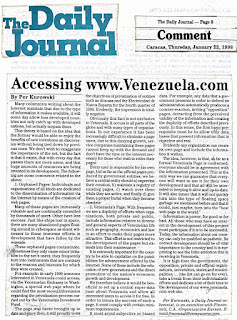A worthy election volunteer
By Per and M.C. Kurowski
Chapter One: I recently had the opportunity to travel to a country in Central America with widespread poverty. The airplane I was on carried at least 30 young Americans, all of them between 16 and 18 years old. They belonged to one of the Peace Corp´s programs I did not even know still existed. Upon arriving at the local airport, I watched them load their gear onto a truck and head off, facing two years of hard labor in the interior of the country. Without delving into matters of cost-benefit ratios of this enterprise, I must confess that this evidently well-intentioned and healthy volunteer effort moved me deeply.
Chapter Two: I returned home from my trip to Central America and was promptly hit by press reports about the costs involved in our election process. Most of these costs were to related to services that, should democracy really mean something, could easily be supplied by well-intentioned and healthy volunteers. This should be one of the principal priorities for the newly appointed members of our electoral organization.
Chapter Three: I spent the recent Carnival vacations in Margarita. My eldest daughter came to me with a comment about something she had seen on the beach. I enjoyed the story and asked her to put it into writing. The following is the transcription of her notes.
“Adventure on Playa Guacuco by Mercedes Christina – Age 15:
There we were, on the beach, full of family spirit, without a care in the world; a healthy environment to be admired and yearned for; never perturbed but for the few moments when the eventual topless European appeared on the horizon.
The beach is a wonderful place. One is always learning about the latest rumors while the children (a classification awarded to all those younger than I) play with their surf boards or ask for money to buy ice cream or empanadas from the local vendors who, because you are their “favorite client”, generously charge triple the going sales price. Your family keeps smiling, Mom reads a good book, and I, being the well educated daughter I am, comply with my usual duty of making sure Dad receives his daily exercise by playing racket ball.
Just as we began competing to see who would replace Pete Sampras, the ball got away from me and I ran to retrieve it. As I bent down to pick it up, I noticed out of the corner of my eye the presence of a pair of black boots. I straightened up with the intention of asking the owner where he had acquired them since they would definitely have been a great addition to my own collection of footwear. Upon raising my head, I was treated to the fright of my life. The owner of the boots was a longhaired Rambo who was in turn flanked by two lieutenants.
The three soldiers were dressed in camouflage and the only possible reason for their being there in that particular outfit must have been to blend into the palm trees. Given the fact that it was Carnival, their bulletproof vests should probably have been more like egg proof vests. Each one of them was armed to the teeth, and since I am far from an expert in ballistics and armor, their rifles seem more like large cannons.
All this impelled me to reflect on the time and effort our politicians spend supposedly drafting plans to insure the safety of our borders. Apure is the state normally mentioned when adults discuss these problems. My sense of orientation may be poor, but from what I understand, Margarita is not a candidate for surveillance due to border problems. There is quite a distance between Trinidad and Margarita.
Or could it be something else (something my father often talks to me about); that the idea of what adventure tourism should be as perceived by our government is not quite what it should be. They not only scared the wits out of the Europeans, but out of the Venezuelans as well. I believe that instead of attracting foreigners, they are driving them away. For the moment, they should send Rambo and his pals to Apure, where their work will be far more productive.”
Conclusion: Obviously, I am a proud father. I am proud of Mercedes as well as of her sisters. Since I cannot find a sufficiently viable and coherent political proposal out there which will insure improvement of the lamentable situation our country is in, I believe my children form part of a generation of Venezuelans that must necessarily take charge of their own destinies.
However, before they send us packing, I would really like to instill in them a real love for democracy. In this sense, I ask the new officials of our electoral council to forget about teachers and professors when planning the execution of our next presidential elections and give our 15 to 18 year olds a chance to really participate. They are the principal source of generous volunteer service well as the primary victims of our electoral mistakes.

















